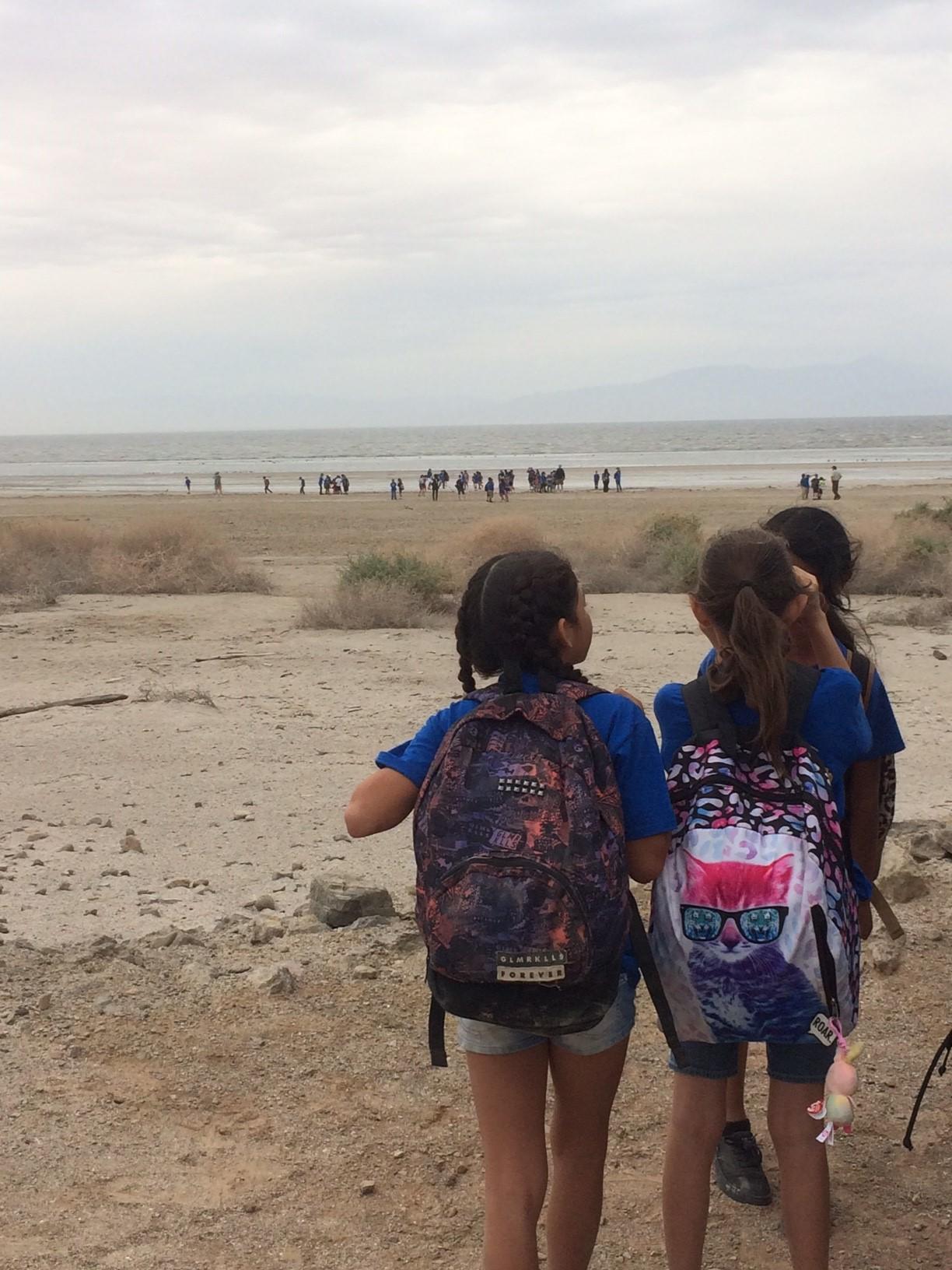Audubon’s Sharing Our Shores program recently expanded to the Salton Sea. Educators from San Diego Audubon visited 115 third-grade students at Myron D. Witter Elementary in Brawley, California to teach the students about the importance of the Salton Sea for migratory shorebirds.
Students learned about the habitats, food sources, and birds that rely on the Salton Sea during their annual migrations, including Western Sandpipers, Western Snowy Plovers, American Avocets, Black-necked Stilts, and Whimbrels.
Using tweezers, beach sand, and plastic seashells, students studied bird bill form and function and shorebird food sources as they practiced surface feeding and probing techniques. After discussing natural threats and human disturbances on the shorebirds, students were invited to create signs that will educate the public to refrain from disturbing the shorebirds that utilize pond areas located at the Sonny Bono Wildlife Refuge.

Later that week, the students visited the Sonny Bono Wildlife Refuge and were led on a two-hour hike by refuge staff. They learned about desert habitat, shorebird adaptations, plant identification and lessons in geology. The best part of the day was viewing Western Sandpipers through a spotting scope and watching shorebirds, such as the Black-necked Stilt and American Avocet, feeding in the shallow waters.

This critically important migratory shorebird habitat will soon receive greater protection and attention from the educational signs designed by the junior avian protectors at Myron D. Witter Elementary School.
By Ariana Rickard
HOTSPOT: Flyover of California's Birds and Biodiversity
California is a global biodiversity hotspots, with one of the greatest concentrations of living species on Earth.
Popular Stories
- California’s birds will benefit greatly if Prop 4 passes this November
- Prop 4 and Our Future: A Climate Action Q&A with Mike Lynes
- California Voters Said Yes to Prop 4, a Win for Birds, People, and Our Shared Future!
- New Eelgrass Protection Zone launches in Richardson Bay!
- Uniting People, Birds, and Land through Agriculture




